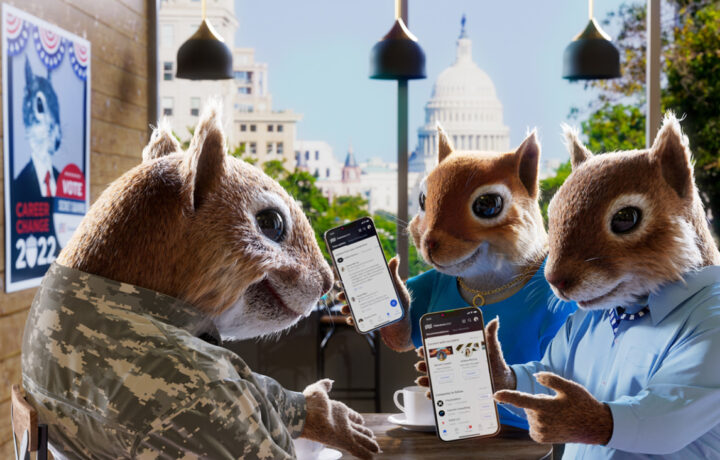Follow me for any length of time, and you’ll notice a trend. I hate filling out profiles. Who am I? Not always sure. I’m always amazed by the people who know who they are on sites like LinkedIn. But I will admit that I’m generally a little suspect of the profiles and the buzzwords used. I often wonder what the terms really mean.
I was especially intrigued on this topic this week while on a little getaway with my family. Determined to read from an actual book and in an effort to stretch my mind a smidge, I brought along my favorite fallback book Everybody Writes. Anytime I’m in writing funk, I crack this puppy open, and within three chapters (they’re only 2-3 pages each), I’m back on track and inspired. Nothing in the book is necessarily profound. It just reorients my writing brain and scratches the creativity itch I have that can get lost in all the details of managing work and life.
LInkedIn and Social Media Profile Top Buzzwords
It took a few extra chapters this time, given some of the topics and the state of my headspace. But about six or so chapters in, I land on Chapter 66 – LinkedIn profiles. I read a little closer because admittedly, every time I have to create a profile, I’m reminded how much I dislike the process. I see so many profiles with a lot of big words that seem really smart. I always think, “I don’t want to say those things, but they must be really smart and that must be what I’m supposed to do.” And then I leave my profile as-is. It’s not just LinkedIn. I do the same on ClearanceJobs and personal social profiles.
I started scanning their 2013 list of overused buzzwords on LinkedIn. I’ve written about similar resume buzzwords – no surprise, they’re also used out on professional network sites too.
- Responsible
- Strategic
- Creative
- Effective
- Patient (really? People used to post this?!?)
- Expert
- Organizational
- Driven
- Innovative
- Analytical
Of course, after noting the date, I began my search for what’s currently buzzing (not to be confused with bussing like my GenZ kids say). I stumbled on a recent article that gave this list:
- Specialized
- Experienced
- Leadership
- Skilled
- Passionate
- Expert
- Motivated
- Creative
- Strategic
- Successful
A decade later, some buzzwords never change. I still see these words all.the.time.
Five LInkedIn and ClearanceJobs Profile Tips
How can we be better? The simple answer may be to just scan your profile and delete any buzzwords. But what should be in your online profiles? I think that depends. The answer may be different if you’re actively job searching, or your personality and relationship to networking.
It’s easy to focus on what to remove from your profile. It’s harder to decide on what to include. Here’s what you can do to improve your online profiles.
1. Scrub out any buzzwords.
Most of the time, soft skills won’t catch anyone’s attention. If you’re more of a generalist like me, that can be frustrating. But it’s better to show your soft skills anyway. Instead of calling yourself organized, be organized in every interaction you have with people. Have a conversation in person? Follow up online. Keep your information up-to-date and…organized. Show them your soft skills, but don’t bother telling people about them.
2. Include keywords that are specific skills.
If you work in any technical or niche job, list out the skills you have. Add task-specific skills that you have acquired over the years. If you’re on ClearanceJobs, share your clearance level and issuing agency. Those are the things recruiters are searching for. It’s not enough to know if a candidate is cleared, they need to know which coding language or specific skills they have, as well as their clearance level.
3. Keep education and certifications updated.
These accomplishments are tangible and searchable. Anything achieved should be specified. Whenever my connections note an additional certification, I always congratulate them in my head. Sometimes, I saw it online – don’t forget that I might be a tad lazy and some of you are out there achieving certifications every other day. However, if they call themselves a leader? Unless experience proves that, it’s better left unwritten.
4. Update your jobs and dates, as well as, include company names and titles.
If you have enough on your profile to get snagged by a recruiter, they can see your job accomplishments on your resume. In the cleared space, if you have the rights skills and clearances, a recruiter will be asking for your resume or to chat as soon as they spot you. Feel free to add some verbiage with these sections – especially on ClearanceJobs. But it’s best to take a peek at the jobs that you’re going for and align what you say with the specific and relevant experience.
5. Share relevant content to your industry.
We’re on networking sites to connect professionally. It’s a lot more fun to do that over shared information instead of constant professional accolades. Sharing content (not whining about how hard it is to find a job) shows that you’re relevant and well-versed. It’s a bit of a show not tell interaction that you can have online. This is an ongoing task, so check in regularly and add to the community.
Calling yourself innovative or creative or experienced won’t make you stand out in any searches. It doesn’t make you sound any smarter. Instead, make your space relevant – even if you’re a minimalist like me.



